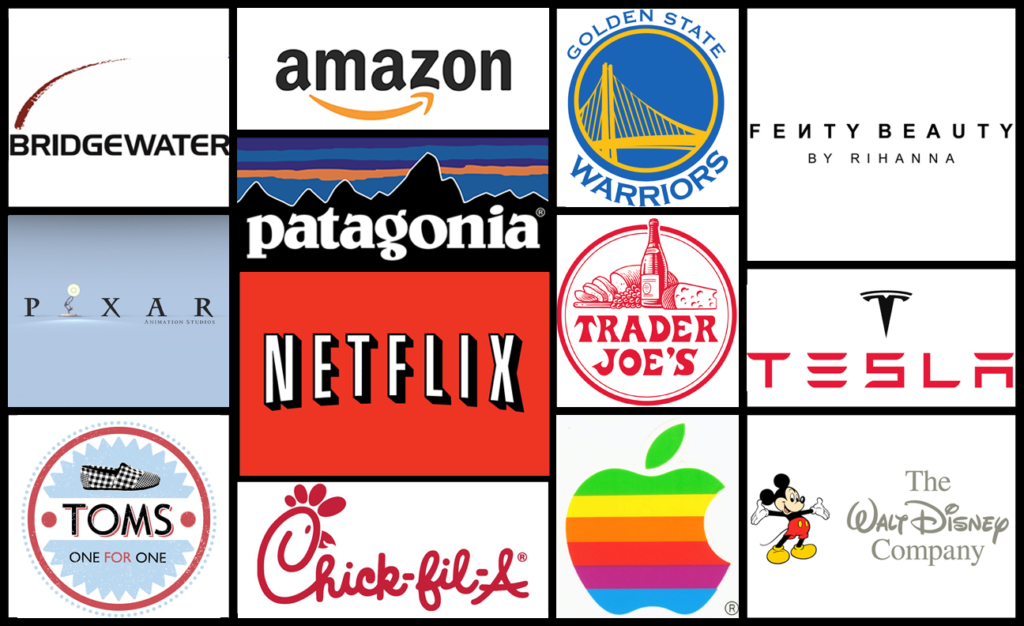
On the surface, Patagonia doesn’t seem all that unique. The company sells outdoor clothing and gear – wetsuits, waders, and workwear along with backpacks, bags, and bottles. You can find similar items at The North Face … or Cabela’s for that matter. It isn’t the best place for adventurers on a budget, either.
So how did they develop such a fervent following? Simple: Patagonia built their company around a mission: one that resonates deeply with the nature lovers, free spirits, and optimists who populate their customer ranks.
LOVING THE PRODUCTS…AND THE MISSION
“I truly admire Patagonia because of its commitment towards social welfare,” writes Dhanushka Kadawatharatchie, a 2019 graduate of Cornell University’s Dyson School of Applied Economics and Management. “Patagonia’s mission statement is, ‘Build the best product, cause no unnecessary harm, and use business to inspire and implement solutions to the environmental crisis.’ The firm has truly embodied this message of sustainability in its actions and serves as a role model for other companies who seem to speak about social welfare, but don’t necessarily act in accordance with their words.”
These actions inspired many of the top business majors from this spring’s graduating class. Zoe Bhargava, who joined Twitter this summer after graduating from U.C.-Berkeley’s Haas School of Business, touts Patagonia’s commitment to corporate social responsibility, such as closing on Election Day to encourage employees to vote. Indiana University’s Simona Stancov admires the firm for making products from organic cotton and recycled materials. That doesn’t count the nearly $90 million dollars the firm has donated to environmental groups.
In other words, notes the University of North Carolina’s Alexis Hartigan, Patagonia is one of those rare finds. It is a company of conscience that pays close attention to how its practices truly impact the larger world. “It engages in sustainable fair-trade efforts,” Hartigan explains. “To reduce waste, Patagonia even offers a lifetime repair policy that satisfies customers as well as the environment. Beyond its immediate business decisions, the company also actively seeks to help in other ways. After the federal tax cut, Patagonia gave all the money it would have saved from the tax cut to environmental causes.”
Bhargava boils the company’s appeal down to one sentence: “Patagonia not only a company whose products I am eager to wear but also a company that I am proud to support.”
A WIDE ARRAY OF INDUSTRIES AND PHILOSOPHIES
This “Do well and do good” ethos stirred the Class of 2019’s imagination. However, the Best & Brightest Business Majors were swayed by more than a company’s intentions. Some were drawn to disruptors who challenged complacency, doing what others couldn’t or wouldn’t to open up new possibilities. Others found role models in incumbents, who navigating the digital age by continuously investing and adapting. Beyond the siren call of innovation, they learned the fundamental values of strategy and execution, how an uncompromising commitment to service and quality is the foundation for any sustainable business model.
Ask the Best & Brightest for a favorite company and you’ll rarely receive the same answer. They lauded retailers and restaurants, startups and conglomerates. Their choices range from Pixar to Berkshire Hathaway to the Golden State Warriors. While the Class of 2019 naturally gravitated to high tech, many also hailed companies that were innovating in seemingly-stale spaces like groceries and luggage. In many cases, these top business majors had already interned with these firms. Here, they tasted what made them so special: they knew their customers, cared about their employees, gave back to their communities, and strove to be their very best every day.
This year, Poets&Quants asked these Best & Brightest Business Majors to share the companies they admired the most – the role models whose values they plan to emulate as their careers progress. Here is a sampling of the companies that have inspired and influenced the future leaders of business.
Airbnb: “While many hospitality industry professionals are terrified of Airbnb, I think the company has truly shaken an industry that was getting too comfortable. What Airbnb saw is that people are looking for unique, authentic experiences when traveling. In its success, the hospitality industry has had to take an internal look, leading to great progress. As a design fiend, I have especially seen this ring true in the physical design of many great hotels, where local attributes are being built even into chain hotels.”
Marissa Block, Cornell University
ALDI: “I have come to admire ALDI because they are truly experts at efficiency. They are constantly striving to maximize their efficiency at every level of their business in order to continue to provide their customers with high-quality products at the best possible prices. Furthermore, they invest heavily in their employees and are sincere about providing real opportunities for their employees to grow.”
Dylan Brooks, University of North Carolina (Kenan-Flagler)
Amazon: “Back in 1998, Jeff Bezos told his investors that they were not investing in a company that would provide them with short-term profit; they were investing in the future of the world – a long-term project that will eventually take over everything. Bezos effectively communicated his vision and attracted some of the wealthiest, most mission-driven individuals to be the backbone and the fuel for Amazon. As Amazon started to erupt in profit in 2012, Amazon’s investors are still choosing to reinvest into the business to fuel this business machine to take over the world. Amazon succeeds in customer service, product delivery speed, and shopping convenience. At the same time, Amazon keeps reinvesting capital to raise the bar to where no other competitors can match. A great metaphor to describe Amazon is that it has the world’s largest oxygen tank. While Amazon jumped in the ocean with the largest tank, it also forced its competitors to jump in, except no one can last as long as Amazon can.”
Taylor Huang, Texas University (Neeley)
“I remember in my freshman year of high school when my teacher asked what I thought of Amazon compared to eBay. I responded to her that it felt so much safer, that it was a trustworthy site. Amazon realized that consumers value trust when they are looking to purchase a product or service on the internet and they really ran with it. It has been able to grow to this remarkable level that it is at now because consumers were able to simply trust them. Starting with things as simple as books before moving into areas like music, movies, and even food. Many companies take consumers trust for granted, but Amazon is completely aware of it and has used it to propel their business into a new dimension.”
Adriele Almeida, University of Massachusetts Amherst (Isenberg)
“Living in today’s world, we see the impact that technology plays in every aspect of our lives. As a consumer, we benefit in many ways, but companies are now forced to be constantly re-evaluating their position and finding ways to adapt to the changing environment. I admire the way that Amazon has continued to reinvent itself and grow in this rapidly-changing marketplace. They have expanded their business model from being an online bookstore to now offering video services, web services, music, and devices. The bold move to acquire Whole Foods now finds them in the brick-and-mortar storefront business. Who would have thought that an online bookstore would be in a position to take on the likes of Walmart, but with the Whole Foods acquisition Amazon may be the one.”
Riley Doherty, Worcester Polytechnic Institute (Fosie)
“I hate to be cliché, but Amazon! Amazon knew what the world needed before the world knew they needed it. That type of innovation is so unique and awe-inspiring to me.”
Lauren Nobile, Miami University (Farmer)













